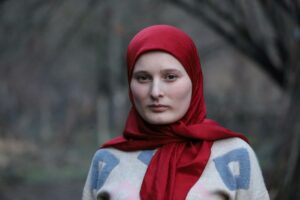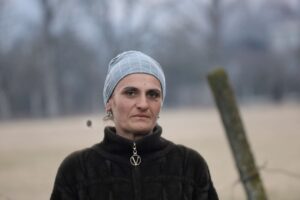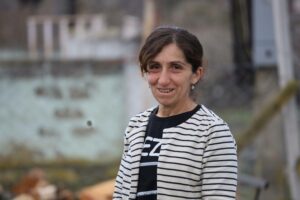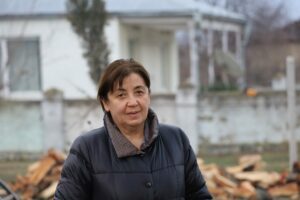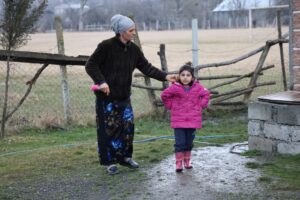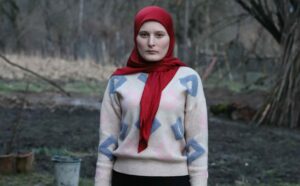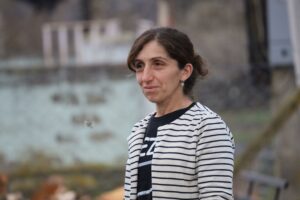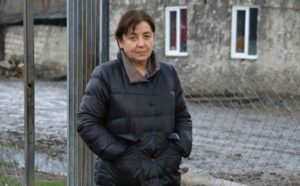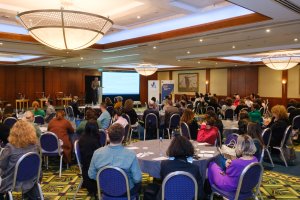
Taking health into their own hands: women’s empowerment in the remote villages of Georgia
The Pankisi Valley in northeast Georgia is faithful to its traditions. For several hundred years it has been home to the Kist community, an ethnic group of Chechen roots, which makes up 70% of the population in the area. Small mountainous villages in Pankisi are governed by the Council of Elder Men in accordance with customary law and Islam. Here, the voice of women often remains unheard. However, EU support has helped women from Koreti, Birkiani, Dumasturi, Jokolo and Kvareltskali villages to speak up on a topic generally silenced by tradition – reproductive health.
“When I was 16, I already had my first child. I was abducted and taken by force. It was not even a question of consent. I could not leave, because I thought I would never get married again. Society determines our decisions.” Pikria Sulakauri, 41, is a mother of eight children, living in Koreti village. Sophia Tsutsashvili, 24, from the neighbouring village of Dumasturi, has a similar story: “I was abducted twice, and since I did not stay, there was a lot of talking about me, and this influenced my decision to agree to a marriage.”
A high rate of early marriages, often by abduction, and large families are quite common for Pankisi Valley. Unplanned pregnancies, infectious diseases and a general lack of information about women’s health are outlined as the key challenges in the area by Svetlana Borchashvili, Chairwoman of the local NGO, ‘The Council of Elder Women’ (CEW). “Some women give birth without visiting a doctor even once,” she says. “But beyond health concerns, there’s a significant information gap. Many women are unaware about screening programmes and regular tests, seeking medical advice at the last stage, which leads to an increase in cancer cases. Mothers often lack knowledge or feel uncomfortable discussing puberty with their daughters – the topic is considered a taboo in the community. Girls, facing problems and unsure of what to do, feel too ashamed to ask their mothers for advice.”
Raising the awareness of local women around issues of reproductive health, as well as on the available medical services, was seen as a vital first step by the Elder Women Council. Thanks to EU support through the ‘Civil Society STAR Initiative: CSOs as Sustainable, Transparent, Accountable, and Resilient Development Actors in Georgia’, implemented by the Konrad Adenauer Foundation (KAS) in partnership with the Centre for Strategic Research and Development Georgia (CSRDG), the NGO organised a number of awareness raising events. As a first step, five workshops – one in each target village – aimed to discuss the physiological changes in a woman’s body, pregnancy and its impact on women’s health, associated risks and possible complications during young pregnancies, a detailed analysis of the use of contraceptives and so on. “If I knew before what I know now, I would have married later, and would have had fewer children,” says Pikria after taking part in the workshop. The events involved 75 women from the target villages, and on top of the key agenda, they helped to disseminate information on the available state-financed programmes for women’s health and municipal services (such as the 2023 social programme of Akhmeta Municipality), with a particular emphasis on reproductive health.
The NGO’s activities continued with individual consultations provided by a reproductive specialist invited from Tbilisi. Fifty women were advised on free screening programmes, given the contacts of relevant clinics and assisted in scheduling appointments.
Moreover, two training sessions took place in Duisi and Jokolo villages, where 40 young girls could ask questions on physiological changes during puberty, challenges of visiting a doctor, addressing societal violence, menstrual disorders, and to get an in-depth overview on the human papillomavirus (HPV) and benefits of vaccination.
In fact, the importance of vaccination was pointed out as a separate topic. “Vaccination is a very sensitive issue in our region due to religious beliefs,” confirms Svetlana. “The more radical elements of our religion, particularly, the Wahhabists, oppose vaccination. They instruct doctors not to vaccinate newborns and claim that vaccination at any later stage is prohibited by religion. These challenges have focused our efforts on increasing awareness about the importance of vaccination, particularly concerning HPV, as many women in the community face health problems related to it.”
So, in August 2023 the Elder Women Council organised an Immunisation Week. For five days, an invited specialist worked in the target villages to give comprehensive information on vaccination to young mothers and women. “Even though it is hard to trace some statistics, we’ve noted a growing interest in vaccination: the local medical ambulatory clinic has registered an increased number of inquiries about it,” says the CEW Chairwoman.
The information events were accompanied by practical trainings to develop technical skills in using remote medical services. The participants discovered such platforms as EKIMO and REDMED, which enable them to consult qualified doctors without leaving their homes, and learned to make orders via online pharmacies.
Alongside awareness-raising, the activities of the Elder Women Council also pursued a broader goal – to engage women in the decision-making process. This was achieved by creating women’s groups in the five target villages (15 women per group), who not only actively participated in the events, but who would also share new information and knowledge with their fellow villagers and assist them in taking informed decisions, such as undergoing a surgery or screening. Eka Abashidze, 38, a member of the women’s group in Koreti village, is very positive about her experience: “Our women have become more active, they have more interest. For example, now they think that papilloma virus vaccination is important for the health of their daughters. And this is a radical change of attitude.”
At present, the women’s groups continue to be intermediaries in their communities, just as they used to do during the course of the initiative. On top of the extensive knowledge, the activists have developed strong leadership skills, which empower them to go ahead on their own. Just recently, the women’s group from Koreti village identified a woman in need in their village and involved her in the ‘Food for All’ programme run by the local municipality to receive daily food for free.
“This initiative was a spark, it was the beginning of a journey we are eager to continue and amplify,” confides Svetlana. “Currently, we are embarking on a new venture: Art Therapy sessions for women. This initiative, supported by the Women’s Fund in Georgia (WFG), marks a fresh start in our ongoing effort to support and empower the women in our community, providing them with spaces where they can meet, interact, and share both their challenges and achievements. We believe in fostering an environment that not only supports their personal growth but also enhances their collective strength. This vision drives us to keep pushing forward and create new opportunities,” concludes the CEW Chairwoman.
Author: Volha Prokharava
MOST READ
SEE ALSO

No, time is not on Russia‘s side
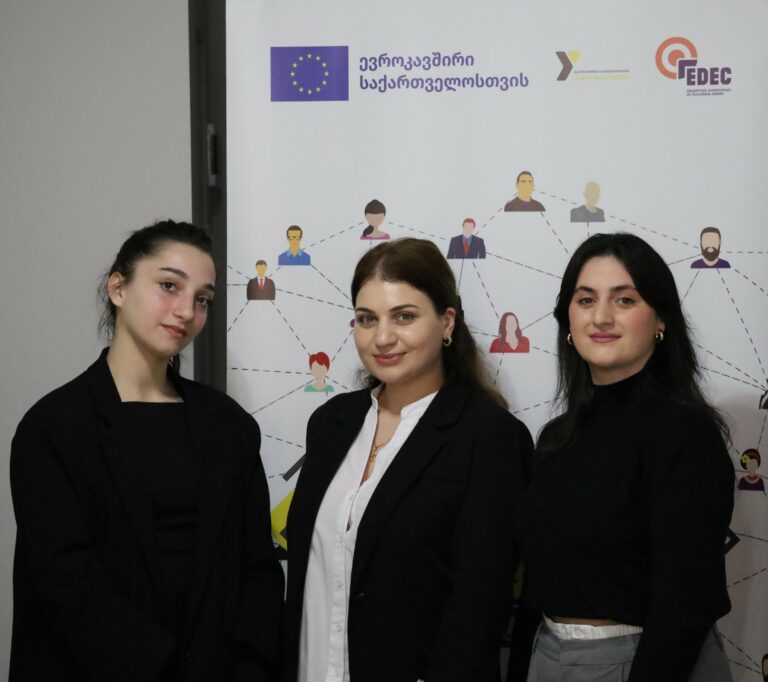
A hands-on approach to boost youth employment in Georgia
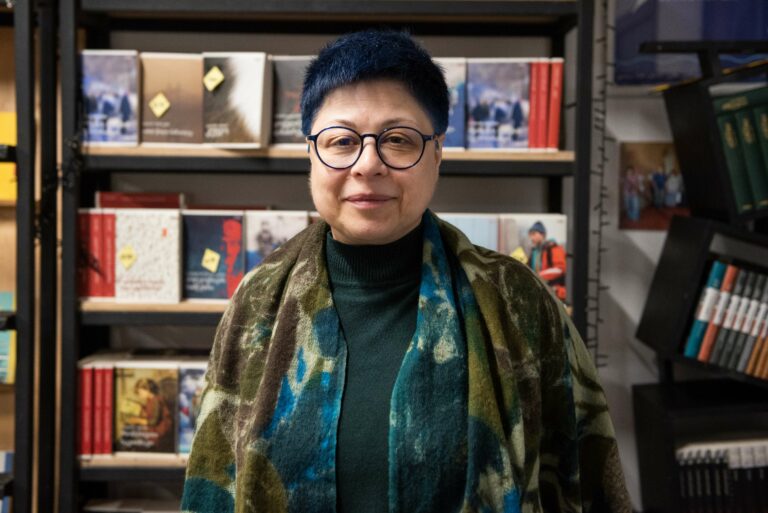
A woman publisher in a male-dominated industry – the path to a big dream

Be one step ahead of a hacker: check simple cybersecurity tips!

Rhisoma Lab: the intercultural hub for creatives in Tbilisi
More campaign pages:
Interested in the latest news and opportunities?
This website is managed by the EU-funded Regional Communication Programme for the Eastern Neighbourhood ('EU NEIGHBOURS east’), which complements and supports the communication of the Delegations of the European Union in the Eastern partner countries, and works under the guidance of the European Commission’s Directorate-General for Neighbourhood Policy and Enlargement Negotiations, and the European External Action Service. EU NEIGHBOURS east is implemented by a GOPA PACE-led consortium. It is part of the larger Neighbourhood Communication Programme (2020-2024) for the EU's Eastern and Southern Neighbourhood, which also includes 'EU NEIGHBOURS south’ project that runs the EU Neighbours portal.

The information on this site is subject to a Disclaimer and Protection of personal data. © European Union,
